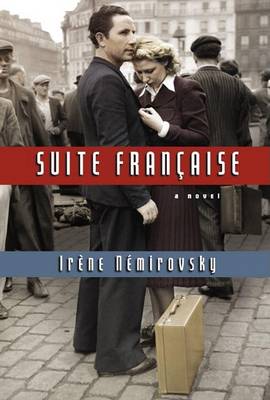Although, granted, completion in any sense was less and less an option; something she would grasp, writing history as history was writing itself, working all the more furiously as time ran itself out. On 28 June, 1941, her journal takes note of events that would inspire the poignant end of Dolce, the second volume of her intended five, as German forces take leave of the occupied French village:
"They're leaving. They were depressed for twenty-four hours, now they're cheerful, especially when they're together. The little dear one sadly said, 'The happy times are over.' They're sending their packages home. They're overexcited, that's obvious. Admirably disciplined and, I think, no rebellion in their hearts. I swear here and now never again to take out my bitterness, no matter how justifiable, on a group of people, whatever their race, religious, convictions, prejudices, errors. I feel sorry for these poor children. But I cannot forgive certain individuals, those who reject me, those who coldly abandon us, those who are prepared to stab you in the back. These people... if I ever get my hands on them... When will it all end? The troops that were here last summer said 'Christmas,' then July. Now end '41."
"I must create something great," she writes soon thereafter, "and stop wondering if there's any point." Sixty-four years later and it has survived with the greatest of these: our humble lives, our art, our God. There is a point, and it's everything necessary.
